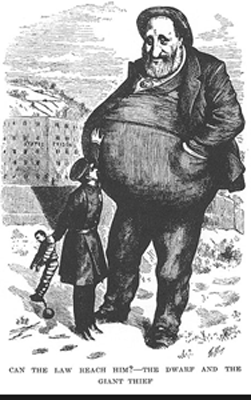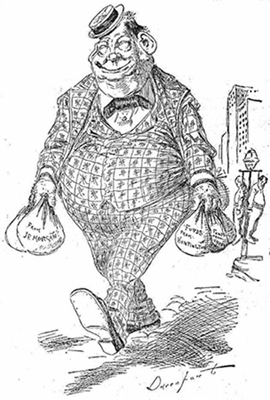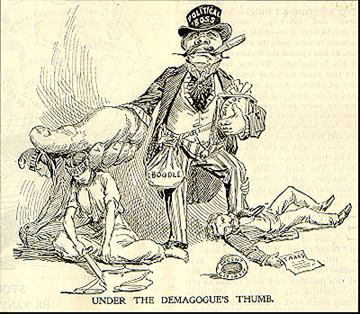
Politics
In the late 19th centurie cities were growing at rapid pace but through under an inefficient government. They were influenced by social darwinism, but people wanted to change for a new political machine, and a new politician. In the past the government was very corrupt, useless bribes were made to the people just to take their money. So it was important that a new government be made. Political reformse paved the way for a more honest and efficeint government in the 20th century and beyond. Political Machines A political machine is an unofficial system of a political organization based on patronage, the spoils system, "behind-the-scenes" control, and longstanding political ties within the structure of a represnative system. Machine politics has existed in many United States cities, especially between about 1875 and 1950, but continuing in some cases down to the present day. it was mainly the larger cities that had machines — Boston, Chicago, Cleveland, New york, Philidelphia, etc. — and each city's machine was run by a "boss," a man who had the allegiance of local business leaders,elected officials and their appointees, and who knew the buttons to push to get things done. There were benefits and problems because of political machine ruling. Steps were also taken to combat these orginization.
Bosses were a major part of the political landscape during the 19th and early 20th centuries in the United. The most powerful of these was James A. Farley who was the chief dispencer of Democratic Party patronage during Franklin D. Roosevelt New Deal administration. Farley parleyed his position as National Party boss into a run for the Democratic nomination for President in 1940, Farley had only been elected to public office once which was to the New York State Assembly, an office he held for only one year 1922-23. In the South, charismatic populist politicians like Huey Long commanded large networks of supporters. Similar practices existed in the northern cities, particularly New York City, where Boss Tweed (arguably the most infamous political boss) wielded control over the powerful Democratic political machine. Analogues could be found in most other Urban settings, e.g. the Chicago Democratic Machine and the political racket of E.H. Crump in Memphis Tenesee.
Immigrants and The Boss Many machines formed in cities to serve immigrants to the U.S. in the late 19th century. Many immigrants viewed machines as a vehicle for political enfranchisement. Additionally, many immigrants were unfamiliar with the sense of civic duty that was part of Ameircan Republicinaism. They traded votes for jobs and inside favors from judges, policemen, and city inspectors. Some bosses were ruthless in their endeavor to retain power. The main role of the machine staffers was to win elections—usually by turning out large numbers of voters on election day. Occasionally illegal tactics were used in local elections (but rarely in state or presidential elections).
The New Immigrants | Challenges of Urbinization | Politics | Diversity | Urban Problems
|


